Carl E. Olson's Blog, page 145
June 28, 2013
Authentic Freedom and the Homosexual Person

Authentic Freedom and the Homosexual Person | Dr. Mark Lowery
The tragic impasse that exists in our culture on the issue
of homosexuality stems from two errors.
On the one hand, many moderns have
embraced an autonomous view of reality: "I can do what I want as long as it
doesn't hurt anyone else." According to such relativism, homosexual acts are
perfectly legitimate so long as they are between two consenting adults. In
stark reaction to such subjectivism, many others embrace a moralism that easily
turns venomous when it vilifies and demonizes: "Homosexuality is wrong because
God said so" (and nothing more). The distinction between the homosexual
condition and homosexual acts, if added at all, is added as an afterthought.
This view, opposite that of autonomy, could be termed heteronomy, because God's law is understood to be extrinsically
and somewhat arbitrarily placed upon man with a seeming lack of concern for
actual experience of the persons involved.
Pope John Paul II, in his encyclical Veritatis Splendor (art. 41), distinguishes the Catholic moral outlook
from these two erroneous positions. He labels the Catholic view a "participated
theonomy." If for autonomy there is no law, and if for heteronomy the law is to
be followed because God said so, for participated theonomy the moral law is
something friendly to our being, something built for our genuine fulfillment
and for our authentic freedom. The law is not true because God commanded it;
rather, God commands it because it is true. When we use our free will to align
our lives with this truth, we possess authentic freedom.
What does this mean for the debate on homosexuality?
June 27, 2013
Man and Arbiter
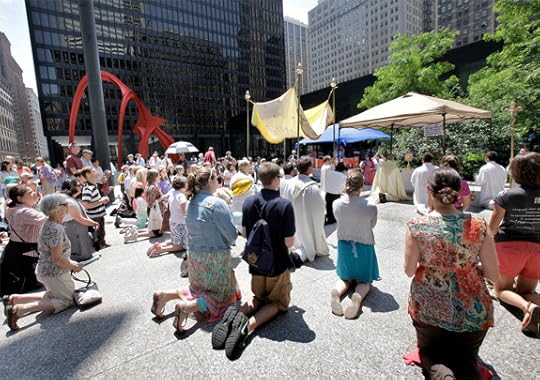
Man and Arbiter
| Thomas M. Doran | CWR
Human beings are notoriously fallible. Making even the wisest among us an arbiter of moral questions is risky business.
An arbiter, derived from the
Latin for judge, is defined as “one chosen to judge or decide a
disputed issue”; also, “one who has the power to judge at will”.
Many insist that an arbiter for
morality and behavior is irrelevant today, that enlightened societies
have progressed beyond judging morality and behavior, unless behavior
breaks a law. Nonetheless, it is evident that human beings, though
many will not admit it, need an arbiter. The fundamental question is
who or what will this arbiter be?
Belief systems are at the heart of this
question. Scientific materialists deny a Deity and anything
transcendent, including objective Truth. Many believe in a
“disengaged Supreme Being, or force”, including Deists, New
Agers, and Buddhists; Star Wars is a modern depiction of such a
“force”. There are those who believe in an “engaged Supreme
Being”, including many traditional Jews and Muslims. Most
Christians believe in a “Trinitarian Supreme Being in solidarity
with man, even as man.”
Pantheists and dualists accept numerous
deities, some opposing others. Syncretists adopt bits and pieces of
more than one of these belief systems. Agnostics profess to be
ambivalent on the matter of a Supreme Being, with most eventually
drifting into the camp of the scientific materialists or the
syncretists.
Many scientific materialists who are
critical of “Deity as arbiter” fail to acknowledge, or recognize,
that they themselves have need of an arbiter. To those who assert
that they are post-morality, offer a view contrary to the avant-garde
positions on homosexual activity and reproductive “rights” and
see what happens.
Consider. Whether one makes this choice
explicitly or implicitly, all rely on an arbiter for essential
questions of justice, truth and falsehood, good and evil.
June 26, 2013
What Price Marriage?
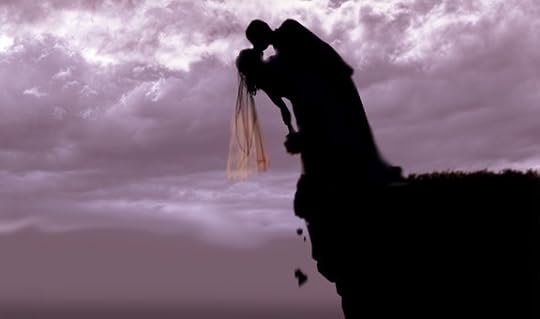
What Price Marriage? | John S. Hamlon | CWR
A Review of
What Is Marriage? Man and Woman: A Defense by Sherif
Girgis, Ryan T. Anderson, and Robert P. George
“What Price Glory?” is
the title of a 1924 play about life, death, and heroism in the trenches of World
War I. One of the co-authors,
Laurence Stallings, was a Marine sergeant in the famous Battle of Belleau Wood
during which the Marines earned (according to American combat reporter Floyd
Gibbons) the eternal epithet, “Teufelshunde”—“Devil
Dogs.” Stallings was wounded in
that battle, eventually losing one of his legs.
This review—“What Price
Marriage?”—points to another kind of war, that of preserving the original
meaning of marriage—the union of one man and one woman as husband and
wife. In the near, and not so
near, future there will be countless skirmishes and many pitched battles
between preservationists and revisionists. The difference is that we who are for traditional marriage will likely be on the defensive for decades to come. We will not have the chance to shock the opposition with an
will likely be on the defensive for decades to come. We will not have the chance to shock the opposition with an
offensive as definitive as the Marine advance at Belleau Wood. If the opposition is able to be shocked
at all, it will be in retrospect when it finally recognizes the societal
no-man’s-land it helped create by ignoring the goods inherent in conjugal love:
commitment, exclusivity, procreation, complementarity, and stability.
What
Is Marriage? Man and Woman: A Defense is, in fact, part of an ongoing strategic offensive,
certainly in light of the U.S. Supreme Court decisions on Proposition 8 and the
Defense of Marriage Act (DOMA).
The authors—Sherif Girgis, Ryan T. Anderson, and Robert P. George—would
eschew the military references.
They have taken great pains to keep the dialogue
non-confrontational. You will find
in their work no button-pushing words, ad hominem attacks, “hetero”/“homo” juxtaposition, or
moral/religious arguments. It is
straight, transparent common sense.
There are no cunning, carnivorous agendas in sheep’s clothing. So, the warring metaphor (if it is a metaphor) is solely mine.
About the authors: Were
I ever brought before a civil or criminal court for “hate speech” (in support
of traditional marriage), I would want the authors to be my defense team, no
question. Their minds are like
ginsu knives that can slice through anything from brass pipe to overripe
tomatoes. If they learned a
modicum of legal protocol, the prosecution would have its hands full.
I have listened to
Girgis, seen
Anderson, and heard George give a talk in Sacramento. All are professional, beyond
intelligent, and unflappable. In
addition, Professor George (Princeton University) has a marvelous sense of
humor. Even if my case were lost,
the listening public would be way better educated about the reality of
marriage, and not a little mesmerized.
In What Is Marriage? there are six chapters sandwiched between an
Introduction and Conclusion, followed by an Appendix. The text covers 109 pages, all filled with straightforward,
down-home thinking. That does not
mean it is an easy read—it presumes that the reader’s forebrain has been oiled
with Logic 101, Aristotle 202, and Aquinas 303. I am hyperbolizing, somewhat. There are some paragraphs I had to re-read several times to
get the gist. But most major
points leap off the page and are quite brain-friendly. I shall spotlight a few of those
points, and, where appropriate, insert a reservation or two.
Introduction
According to the
authors, there are two operative views of marriage today, one existing from
time immemorial and the other from the day before yesterday:
(1) The conjugal
view “has long informed the law… of our civilization. It is a vision of marriage as a bodily as well as an
emotional and spiritual bond, distinguished thus by its comprehensiveness…. In
marriage, so understood, the world rests its hope and finds ultimate renewal”
(p. 1).
(2) The revisionist view focuses on “a loving emotional bond, one
distinguished by its intensity—a bond that needn’t point beyond the partners,
in which fidelity is ultimately subject to one’s own desires. In marriage so understood, partners
seek emotional fulfillment, and remain as long as they find it” (pp. 1-2).
In the first
definition, note well the word “comprehensiveness.” For the authors, marriage is a comprehensive union, meaning “a union of will (by consent) and
body (by sexual union); inherently ordered to procreation and thus the broad
sharing of family life; and calling for permanent and exclusive commitment,
whatever the spouses’ preferences” (p. 6). Such a union, by definition, exists only between a man and a
woman.
The central purpose of
the book is to show that conjugal marriage laws are rationally grounded. While doing that, the authors argue
that marriage is a moral reality—“a human good with an objective structure,
which it is inherently good for us to live out.” Their syllogism:
Fr. Joseph Fessio, SJ, laments SCOTUS rulings: "we are about to sink even lower. God help us."

Fr. Joseph Fessio, SJ, founder and editor of Ignatius Press, which is based in San Francisco, expressed obvious frustration this morning in commenting about the Supreme Court rulings striking down the Defense of Marriage Act (DOMA) and dismissing Proposition 8.
"They are profoundly wrong and wrong-headed decisions," he stated in e-mail correspondence this morning. "And it is deeply depressing that in each decision a Catholic justice was the swing vote."
"There is a twofold problem that underlies both decisions," he wrote. "1) That issues of such fundamental significance for society should be decided by a single, unelected person. That’s what happens when there is a 5-4 decision. 2) That the judges of the Supreme Court who ought to be exemplary for their wisdom as well as their technical knowledge of the law can be completely blind to the obvious: this is not an issue of equality at all. Same sex unions are not in any way equivalent to marital unions."
Fr. Fessio specifically named Justice Anthony Kennedy, who wrote for the majority in the Court's ruling on DOMA ("United States v. Windsor"). "Justice Kennedy wrote, 'The federal statute is invalid, for no legitimate purpose overcomes the purpose and effect to disparage and to injure those whom the state, by its marriage laws, sought to protect in personhood and dignity.' This is only slightly less outrageously self-contradictory than his famous 'mystery” utterance: 'At the heart of liberty is the right to define one's own concept of existence, of meaning, of the universe, and of the mystery of human life.'"
That statement was written by Justice Kennedy (along with Justices Souter and O'Connor) in
his opinion on the 1992 case, "Planned Parenthood v. Casey."
"If you can define your own concept of meaning," added Fr. Fessio, "well, I suppose you can play Alice in Wonderland with any concept you want, including marriage. So at least Justice Kennedy is consistent in his self-contradiction, and this decision is simply a consequence of the earlier principle. However, he even goes farther here and apparently can read hearts, since he claims that the 'purpose' is to 'disparage and to injure'. So one man sets himself against the wisdom of all recorded history which recognizes the obvious: a marital union can do what no other union can; further it is not only a benefit to the state, but the state cannot exist without it. Giving it special status and protection does not disparage or injure anyone; it simply recognizes an empirical fact that only the willfully blind can fail to see."
Justice Kennedy, in the majority opinion on DOMA, flatly stated that "the principal purpose and the necessary effect of this law [DOMA] are to demean those persons who are in a lawful same-sex marriage." Kennedy also wrote, "The federal statute is invalid, for no legitimate purpose overcomes the purpose and effect to disparage and to injure those whom the State, by its marriage laws, sought to protect in personhood and dignity. By seeking to displace this protection and treating those persons as living in marriages less respected than others, the federal statute is in violation of the Fifth Amendment."
Justice Antonin Scalia, in his dissenting opinion, stated, "I am sure these accusations are quite untrue."
Scalia also strongly criticized Kennedy's opinion, arguing that it essentially describes as bigots anyone who upholds marriage as an institution consisting of a man and a woman:
But to defend traditional marriage is not to condemn, demean, or humiliate those who would prefer other arrangements, any more than to defend the Constitution of the United States is to condemn, demean, or humiliate other constitutions. To hurl such accusations so casually demeans this institution. In the majority's judgment, any resistance to its holding is beyond the pale of reasoned disagreement. To question its high-handed invalidation of a presumptively valid statute is to act (the majority is sure) with the purpose to "disparage," "injure," "degrade," "demean," and "humiliate" our fellow human beings, our fellow citizens, who are homosexual.
All that, simply for supporting an Act that did no more than codify an aspect of marriage that had been unquestioned in our society for most of its existence--indeed, had been unquestioned in virtually all societies for virtually all of human history. It is one thing for a society to elect change; it is another for a court of law to impose change by adjudging those who oppose it hostes humani generis, enemies of the human race.
Fr. Fessio also criticized the majority opinion written by Chief Justice John Roberts in the Court's ruling on Proposition 8 ("Hollingsworth v. Perry"). The Chief Justice, he noted, wrote, "We have never before upheld the standing of a private party to defend the constitutionality of a state statute when state officials have chosen not to. We decline to do so for the first time here." By that principle, observed Fr. Fessio, "the Supreme Court should have never made any decisions, since each new decision was a 'first time'."
He added, "So we have the sad parody of one Catholic judge being so liberal that even the meaning of meaning isn’t fixed. And another Catholic judge so conservative that he can’t recognize the need for an unprecedented decision when there is an unprecedented set of facts."
"People, myself included, lament the moral decline of America," reflected Fr. Fessio, "Without this stunning intellectual decline—where one can claim that an unborn baby is not a human person and that man-to-man copulation is equivalent to marital union—we could not have sunk so low. With this decision we are about to sink even lower. God help us." He said that he thinks it is clear that the rulings are "going to make it far more difficult for those who defend marriage."
Asked how the rulings will affect the Catholic Church in the United States, Fr. Fessio remarked that they "will call forth saints and scholars who will 'shine like the stars in the midst of a wicked and perverse generation'. They will also be humiliated and very likely, in time, persecuted. Welcome to the Brave New World."
The Human Family and the Family of God

The Human Family and the Family of God | James V. Schall, S.J. | CWR
The recent audiences by Pope Francis emphasize the intimate, familial nature of the Church
“Last
Wednesday, I emphasized the deep bond that exists between the Holy Spirit and
the Church. Today, I would like to begin on the mystery of the Church, a mystery which we all experience and of which we
are part.” — Pope Francis,
General Audience, May 29, 2013 (L’Osservatore Romano, English,
June 5, 2013)
“The ‘koinonia-communio’ of the Spirit of the Father and the incarnate Son
is, as it were, the Council’s master key, as the principle of communion and
mission. The key opens our access to the mystery of the Church, the universal sacrament of salvation, in all its
dimensions: Trinitarian, Christological, anthropological, ecumenical, and
pastoral.” — Marc Cardinal Ouellet,
“Communio”: Address, May 21, 2013, Sydney, Australia.
I.
Over the years, priests are often reminded of Christ’s
admonition that “you have not chosen Me, I have chosen you.” I was ordained on
June 7th fifty years ago in San Francisco. In retrospect, one might
question the Lord’s prudence about whom He chooses. But, if we remember that He
also chose Judas and a few other sour apples along the way, we need not become
too vain. The world is full of folks who purport to be scandalized by sinful
priests or by a vice filled Catholic laity. Such reactions just mean that these
critics have never read the New Testament. While it condemns sin at every turn,
especially scandal, the Gospels gives us no indication that, with the
appearance of Christ in the world, His followers will subsequently be perfect.
Rather, Christ came into the world with the clear
realization that most of us would need to be forgiven many times (”yea, seventy
times seven” Matthew 18:22) before it is all over. Christ did not dwell amongst
us to eradicate sin’s possibility and hence our freedom. He came to provide a
way in which, should we sin, we could be forgiven, but only if we choose to
avail ourselves of the means He set down, not those we concoct for ourselves.
The Church, with its priests and sacraments, exists in the world so that such a
redemptive purpose might be carried out in the concrete context of everyday
life, wherein most of our sins are committed. The place where these sins are to
be forgiven is not the state, the university, the psychiatrist’s office, the
hospital, the press, or the media. It was in the Church and in the sacrament of
confession. About why God chose to do it this way rather than some other, we
might wonder. But there is a certain good sense to it. It puts the divine power
of forgiving sin also in a human context.
II.
In a recent General Audience (May 29), Pope Francis spoke of
“the mystery of the Church.” A “mystery” in Catholic thinking, does not so much
mean something we have no clue about and could not understand if we did have
one. It rather means that we can understand some things correctly enough and
that we should strive to do so. The fact that we cannot understand everything
about any “mystery” only means our own intellects are not angelic or divine.
But they do understand what is not themselves. They know what is. To have a mind means we can “be” what is not
ourselves while what we know remains itself and we remain precisely ourselves.
Thus, when we call the Church a “mystery,” we recognize it
as something brought into existence by God for His own plan or purpose.
June 25, 2013
American Anti-Catholicism and the Confessional

American Anti-Catholicism and the Confessional | John B. Buescher | CWR
A brief history of the anti-Catholic rhetoric deployed in the US against the sacrament of Confession.
The highest tides of
anti-Catholic feeling in this country occurred in the 19th century. The standard explanation for this simply
points to Protestant fears that the waves of Catholic immigrants, especially
from Ireland, would take their jobs away.
Anti-Catholicism, as this
explanation goes, was rooted in the Protestant fear that the “trying of swords”
between Protestantism and Roman Catholicism which had reshaped European history
was moving to the continent of North America, and that the Protestant United
States was not only being outflanked and encircled by Catholic Latin America
and French Canada, but that the US was itself being undone from within by
Catholic immigrants, who were simply waiting until they could impose their
anti-American views on the country by their hive-mind bloc voting, controlled
by “priest police.” The most well-known
exponent of this view of the Catholic Menace was inventor and painter Samuel F.
B. Morse, who in 1835 wrote and published Foreign
Conspiracy against the Liberties of the United States.
But there was certainly another
aspect of the antipathy to Catholics: they were thought to be essentially alien
in the sense of un-American, that is, they could not or would not be
assimilated to basic American principles of freedom and the common good. Some of this came out into the open during
the battles over the public schools and parochial schools—and Catholics today
may still have some lingering sense of that—but the other place this particular
anti-Catholic rhetoric was deployed was in attacks on the Catholics’ sacrament
of Confession.
Catholic apologist James Chancy
wrote in 1888, “By far the bitterest attacks of the Protestants have been
directed against the Confessional. They
merely scoff at the other sacraments of the Church, but of the Sacrament of
Penance their condemnation is strong, their hate deep, bitter, and lasting.”
Why was their antagonism focused
most especially on Confession? Chancy
continued, “Instinctively they feel this is one of the greatest powers the
Church wields to preserve its members from the contamination of the world, the
continuance of the indulgence of passion, and the taint of heresy.” Unsurprisingly, this was not what non-Catholics
offered as their reason for opposing it so strongly. Confession, to them, was the very sink of
iniquity and foremost danger to the republic.
Today’s Catholic surely would be surprised to learn this. Or to learn that two ex-Catholic priests
carried the banners in the crusade against Confession.
June 24, 2013
Jesus and Marriage? A Theological Response
Jesus and Marriage? A Theological Response | R. Jared Staudt, Ph.D. | Homiletic & Pastoral Review
The celibacy of Jesus, and the Christian response to it, is ultimately a question of love, an intimate relation that is hard to grasp for modern man looking in from the outside.
On September 18, 2012, Karen L. King introduced an alleged Coptic
papyrus fragment, which speaks of a wife of Jesus. The Christian
response to the discovery of this fragment has been overwhelmingly
historical in nature, focusing on either the inauthenticity of the
fragment or the lack of evidence in the Gospels to support the claim.
This approach has been significant, raising doubts on its authenticity
based on striking parallels with the Gospel of Thomas and certain
grammatical irregularities. Only to respond on this level, however,
seems to play into the comments that King herself made during her press
conference in Rome: “Christian tradition has long held that Jesus was
not married, even though no reliable historical evidence exists to
support that claim.” 1
In order to respond fully and adequately to a position alleging a
marriage for Jesus, it is necessary to complement the historical
response from a theological perspective. Even if the fragment were
authentically from the fourthcentury, Christians could still be able to
affirm confidently the celibacy of Jesus, drawing on the Gospels’
portrayal of, and the Church’s unbroken teaching in, the divine identity
of Christ and his mission as Savior of the world. The need for such a
response is significant given the climate of contemporary culture in
relation to sexuality and its questions about the identity of Jesus in
relation to sexuality and marriage. The debate surrounding the papyrus
fragment is only the most recent in a series of popular presentations of
Jesus having a wife. In response to these claims, this article seeks to
demonstrate the overwhelming theological evidence necessary to support
the Church’s teaching on Jesus’ celibacy. It will draw upon Scripture,
the Church’s magisterium, and the Catholic theological tradition,
especially St. Thomas Aquinas and Bl. John Paul II, to demonstrate the
incompatibility of marriage with the identity and mission of Christ. It
will conclude by addressing the root of the question in contemporary
culture, which uses the question of marriage precisely to question this
identity and mission.
The Testimony of the Magisterium and Tradition
The first argument in favor of Jesus’ celibacy is the unanimous witness
of the Church through the centuries. It is true that Scripture is silent
on the topic of a wife of Jesus, at least directly, but the Church has
not been silent. Unlike an historical document, or a fragment dug out of
the past for that matter, the Church has a living and continuous voice
and witness concerning Christ. While there are no major pronouncements
from a Council or any great theological treatises concerning Jesus and
marriage, Christians have always held to Jesus’ celibacy. One example of
a treatment of the topic from the Fathers, however, can be found from
writings of St. Ambrose: “Don’t you see that Christ is chastity, Christ is integrity?” 2
Even if the topic were not regularly addressed, the absence of official
pronouncements and theological controversy is significant in its own
right. The issue was simply not controversial, with Jesus’s celibacy
being accepted by orthodox Christians unanimously.
The place where the celibacy of Jesus is explicit in Christian thought is in the Church’s pronouncements on priestly celibacy.
St. John the Baptist, Forerunner

St. John the Baptist, Forerunner | Frank Sheed | From To Know Christ Jesus | Ignatius Insight
All four evangelists begin Jesus' entry into public life with John the
Baptist's emergence from his desert. Matthew leaps straight to John's mission
after the return of the Holy Family from Egypt, Luke after the finding of the
boy in the Temple. The other two actually begin their Gospel with it, nothing
of our Lord's earthly life being told before, apart from John's "The Word
became flesh and dwelt among us."
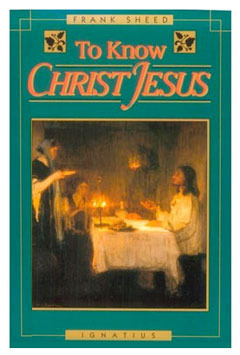
It is clear, then, that John the Baptist's mission was essential: Jesus' own
mission needed it. In his Gospel, St. John interrupts his breathtaking Prologue
about the Incarnation of the Word (which we Catholics read as the Last Gospel
at Mass) to say: "There was a man sent from God, whose name was John. This
man came for a witness, to give testimony of the light, that all men might
believe through him." So that the Light of the World, the Light which of
all lights could surely not be hid, needed someone to give testimony to him,
needed John to give testimony to him!
Little is said in the New Testament to show why John's work was thus essential.
Our Lord praises him indeed: "Amongst those that are born of women there
is not a greater prophet than John the Baptist" (Luke vii.28): and he was
not lavish of praise; pause a moment and try to think of anyone else he
praised. But although Jesus says (you will find it in the verse before) that
John was to prepare his way, it is hard to find any hint from him as to why any
preparation at all was necessary for a mission as powerful in word and as
studded with miracles as his. We are not shown in the Gospels mighty things
flowing from John's work into Christ's. And in the rest of the New Testament
nothing much is made of St. John's mission either. St. Paul never refers to it
at all, though he must have known about it, since the only description we have
of John's origin is given by Paul's companion and disciple, Luke.
Thanks to Luke, all the same, the Church has been intensely aware of John ever
since. He is one of that small and immeasurably select band to whom we say the
Confiteor at every Mass and daily in our own prayers. Great saints have been
named after him—St. John Baptist de la Salle, for instance, who founded
the Brothers of the Christian Schools in the seventeenth century; St. John
Baptist de Rossi, the eighteenth-century saint whose own instincts were rather
like those of his namesake; in the nineteenth century the Cure of Ars,
Jean-Marie-Baptiste Vianaey, who would have loved a desert but was never
allowed by God to go to one. The number of not spectacularly saintiy persons.
who bear his name is, of course, beyond counting—the great French writer
of comedy, Moliere, for instance, was Jean-Baptiste Poquelin.
But all that this means is that the parents of the saints, to say nothing of
the parents of the dramatist and of the unnumbered others, had a great devotion
to the son of Zachary and Elizabeth, not that they had any clear understanding
of why it was essential that Our Lord should have him for a Forerunner, or why
be should have anybody for a Forerunner. What herald could he possibly need?
Their devotion was almost certainly not to the prophet without whom Christ's
mission would have lacked an essential element: it was to the child whose birth
had been foretold by Gabriel, the child who had leapt in his mother's womb at
the sound of Mary's voice as she entered the house of his parents with the
Second Person of the Blessed Trinity in her womb: it was to the man who had
paid with his head for telling the truth about Salome's mother.






 s
s


From John's circumcision until the day he began his great mission in
preparation for Christ's greater mission, there is a gap of thirty years, and
only two phrases to tell us anything about them. The first: "The child
grew and was strengthened in spirit"—probably the spirit here is the
Holy Spirit: the whole phrase is at once like, and not quite like, what is said
of Our Lord in verse 40 of Luke's second chapter. The second: "And he was
in the desert until the day of his manifestation to Israel."
Zachary and Elizabeth were both old when John was born. The general view of
commentators is that they died when John was young, and that it was as a child
he chose the desert rather than the priesthood to which, as his father's son,
he was entitled. The whole Jewish priesthood had been a mighty thing, but a
foreshadowing only. Now that the Reality it foreshadowed was itself in the
world, John had a duty mightier still.
To the south of Jerusalem one finds two areas of rock and chasm, one running
westward, the other eastward towards the Dead Sea, where to this day a man
could live in almost total solitude. Here, probably, John the Baptist made his
long novitiate. It has been suggested that he spent part of the time with the
Essenes, as Josephus was to do in his late teens. They were a rigorous,
ascetical sect. If he did, his teaching is in reaction against theirs.
But we have no detail of his desert life, save what he ate and what he wore. He
wore a garment whose shape, if it had any shape, is not told us: it was made of
camel's skin—the nomads used the same material for making tents. Round
his waist was a strip of leather. He ate, so Matthew and Mark tell us, locusts
and wild honey: the locust is a flying insect about two inches long: the
Bedouins still eat them, dried in the sun and salted to taste. What he ate and
what he wore must have mattered very little to John: it was not merely
asceticism that took him into the desert, he could have been ascetical at home.
Solitude was what he wanted, the solitude in which the strong soul called to it
reaches maturity most surely.
Did the Devil bother him? John's strange, improbable conception—of a
mother past her menopause and an elderly priest—was a nine-days' wonder
in and about the Temple. Satan could not have failed to know of it. The child
was worth watching. And then there were the long years in the desert. There
was, of course, no descent of a dove upon John, no voice from heaven: but these
things had never happened to anyone, and Satan had no means of knowing that
they were the sign of signs. We know that the Pharisees would later be asking
themselves, and ultimately asking John, if he were the Messias. Satan could
hardly have avoided wondering too.
Related Ignatius Insight Book Excerpts:
• The Incarnation | Frank Sheed
• The Problem of Life's Purpose | Frank Sheed
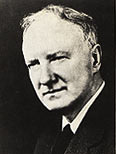 Frank
Frank Sheed (1897-1981) was an Australian of Irish descent. A law student,
he graduated from Sydney University in Arts and Law, then moved in 1926,
with his wife Maisie Ward, to London. There they founded the well-known
Catholic publishing house of Sheed & Ward in 1926, which published some
of the finest Catholic literature of the first half of the twentieth century.
Known for his sharp mind and clarity of expression, Sheed became one of
the most famous Catholic apologists of the century. He was an outstanding
street-corner speaker who popularized the Catholic Evidence Guild in both
England and America (where he later resided). In 1957 he received a doctorate
of Sacred Theology honoris causa authorized by the Sacred Congregation
of Seminaries and Universities in Rome.
Although he was a cradle Catholic, Sheed was a central figure in what he
called the "Catholic Intellectual Revival," an influential and
loosely knit group of converts to the Catholic Faith, including authors
such as G.K. Chesterton, Evelyn
Waugh, Arnold Lunn, and Ronald Knox.
Sheed wrote several books, the best known being Theology
and Sanity, A
Map of Life, Theology for Beginners and To
Know Christ Jesus . He and Maise also compiled the Catholic Evidence
Training Outlines, which included his notes for training outdoor speakers
and apologists and is still a valuable tool for Catholic apologists and
catechists (and is available through the Catholic Evidence Guild).
For more about Sheed, visit his IgnatiusInsight.com
Author Page.
Pius XII: Hated or Revered by the Third Reich?
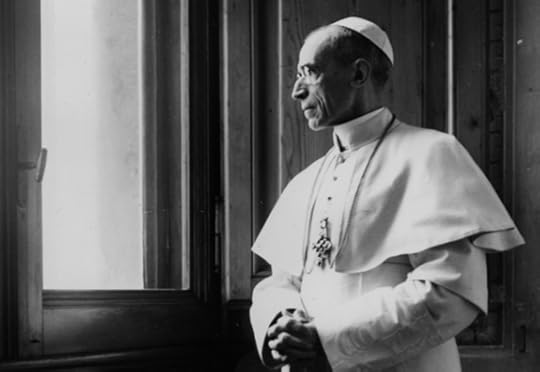
Pius XII: Hated or Revered by the Third Reich? | Alberto Carosa | CWR
An interview with historian Pier Luigi Guiducci about his new book on the war-time pope.
The unprecedented abdication
of Benedict XVI and the election of his successor, Pope Francis, has rekindled
worldwide interest in the popes and the papacy. This interest has extended not
only to Benedict and Francis, but also to other pontiffs, including the always-controversial
Pius XII.
Pius XII is currently in the spotlight
mostly because of the bumpy road to his beatification, which is opposed by
those who accuse him of having been too lenient towards Hitler’s Third Reich or
even of having been in cahoots with the Nazi regime. Recent years have seen the
publication of a vast amount of scholarly works refuting these accusations,
including books by Sister Margherita
Marchione, who is an American nun and member of the Religious Teachers Order Maestre Pie Filippini, and Rabbi David
Dalin.
The latest example of this is Il Terzo Reich Contro Pio XII: Papa Pacelli Nei
Documenti Nazisti (The Third Reich Against
Pius XII: Pope Pacelli in Nazi Documents), by Italian historian Pier Luigi
Guiducci, with a preface by Father Peter Gumpel, SJ, the postulator of Pius XII’s
beatification cause. Editions in English, Spanish, and French are already in
preparation.
Professor Guiducci, who
teaches Church history at three universities, including the Pontifical Lateran
University’s Ecclesia Mater Institute and the Pontifical Salesian University,
has authored nearly 100 books, most with a historical-religious focus, and was
so kind as to accede our request for an interview.
Professor
Guiducci, could you describe the motives underlying your decision to address such
a controversial topic as Pius XII and the Nazis?
Guiducci: Since the Sixties a certain literature has insisted on presenting the
figure of Pope Pacelli in a negative connotation, hinting at an alleged
passivity on his part during the years of World War II, bordering on some sort
of sympathy for a Germany that in those years was dominated by the swastika.
What appeared somewhat unclear from the viewpoint of a historical analysis was why
so much fuss was being made over Pius XII while…many other, no less dramatic,
and even more tragic situations were hardly exposed, scantily reported, and
even thoroughly silenced. But by now, dreadful realities, which were neglected
and/or sidelined, are increasingly cropping up, thanks to historical studies,
investigative reporting, and new in-depth researches.
Can
you give us some examples of these wilfully hidden or neglected tragic
realities of that era?
Continue reading on the CWR site.
June 23, 2013
Rallying for Religious Freedom under the Shadow of Planned Parenthood
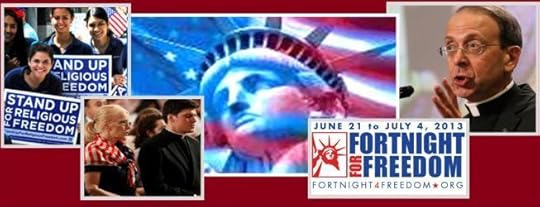
Rallying for Religious Freedom under the Shadow of Planned Parenthood | Arland K. Nichols | HPR
Our Founding Fathers understood that when the state oversteps its boundaries—offending its very charge and offending the rights of the people—we must stand up.
From a keynote address given at the 2012 Rally for Religious Liberty in Houston, Texas.
We stand today in a shadow cast by this massive Planned Parenthood
facility, which was designed to extinguish innocent human life when it
is most vulnerable. We tremble, perhaps with anger, frustration,
sadness, or even fear, as religious liberty, granted by God, protected
by our Bill of Rights, teeters at the edge of the cliff. We stand here,
at the brink, fearful that if our religious freedom goes over that edge,
our country—and all that we cherish about it—goes right along with it.
So we stand as Catholics, yes. But we also stand as men and women
from every faith background you can imagine. As we join thousands of
people of good will, scattered across this nation we love, we recognize
that we fight for a core human truth—we should never coerce a people to
commit an act that is contrary to their deeply held religious beliefs.
The state, if it is to be just, is never to impose its will over and
against the inalienable rights of its citizens.
Our Founding Fathers understood that when the state oversteps its
boundaries—offending its very charge and offending the rights of the
people—we must stand up. We must remind that state, in the immortal
words of Abraham Lincoln, that it is a government “of the people, by the
people, and for the people.” We hope that if we stand up in this
moment, in this moment of great need, this nation, under God, shall have
a new birth of freedom. That is our hope. The stakes are high. The
losses have already been great. But we will not sit it out when our
nation needs us most, when our fellow citizens need us most.
It was President John F. Kennedy who said, “I believe in an America
that is officially neither Catholic, Protestant, or Jewish … where
religious liberty is so indivisible that an act against one church is
treated as an act against all.” Though many would understandably
disagree with much of President Kennedy’s approach toward his faith,
these words ring loud and true.
Carl E. Olson's Blog
- Carl E. Olson's profile
- 20 followers




